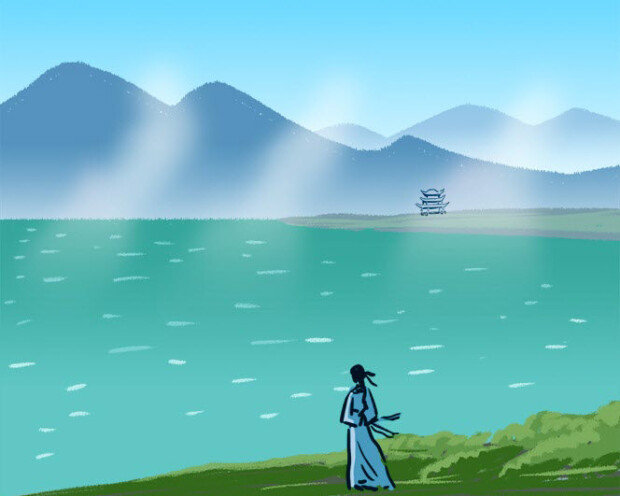A euphemistic solicitation
A euphemistic solicitation
Posted May. 12, 2023 07:50,
Updated May. 12, 2023 07:50

In August, Dongjeong Lake swells so much in August that it almost reaches the level of the surrounding hills. The water and sky meet to form a vast expanse of heaven and earth. Steam rises above the surface of the water, and the waves ripple, shaking the castle walls along the lakeshore. The poet longs to set sail into this vast and vibrant world, but he has neither boat nor oars. It's a shame that he is lying dormant, unable to fulfill his talents and ambitions. Watching those who devote themselves to fishing, he can’t help but feel frustrated for himself for coveting fish in vain. The poem begins with a nonchalant description of the magnificent scenery of Dongjeong Lake, but the poet fails to hide his longing to join the ranks of the bustling world.
Although the poet may not be able to compare himself to the high-ranking government official Zhang Jiuling in terms of age or status, the two have already become close friends through poetry. It would have been awkward for the poet to ask for a favor outright. Still, in the patriarchal society of the Tang Dynasty, it was common practice for poets to compose poems to praise those in power to elevate their own position. This was called “gan-al” poetry in Chinese, which means a personal solicitation. The famous Dang poet Du Fu, who was said to be ashamed of asking for favors, wrote several gan-al poems to high-ranking people. "An old horse can only think of running a thousand miles, and a hungry hawk waits for a single call. It will be enough to comfort this man if you show kindness." As impatient as he was, the gan-al poem made him put his pride aside.







